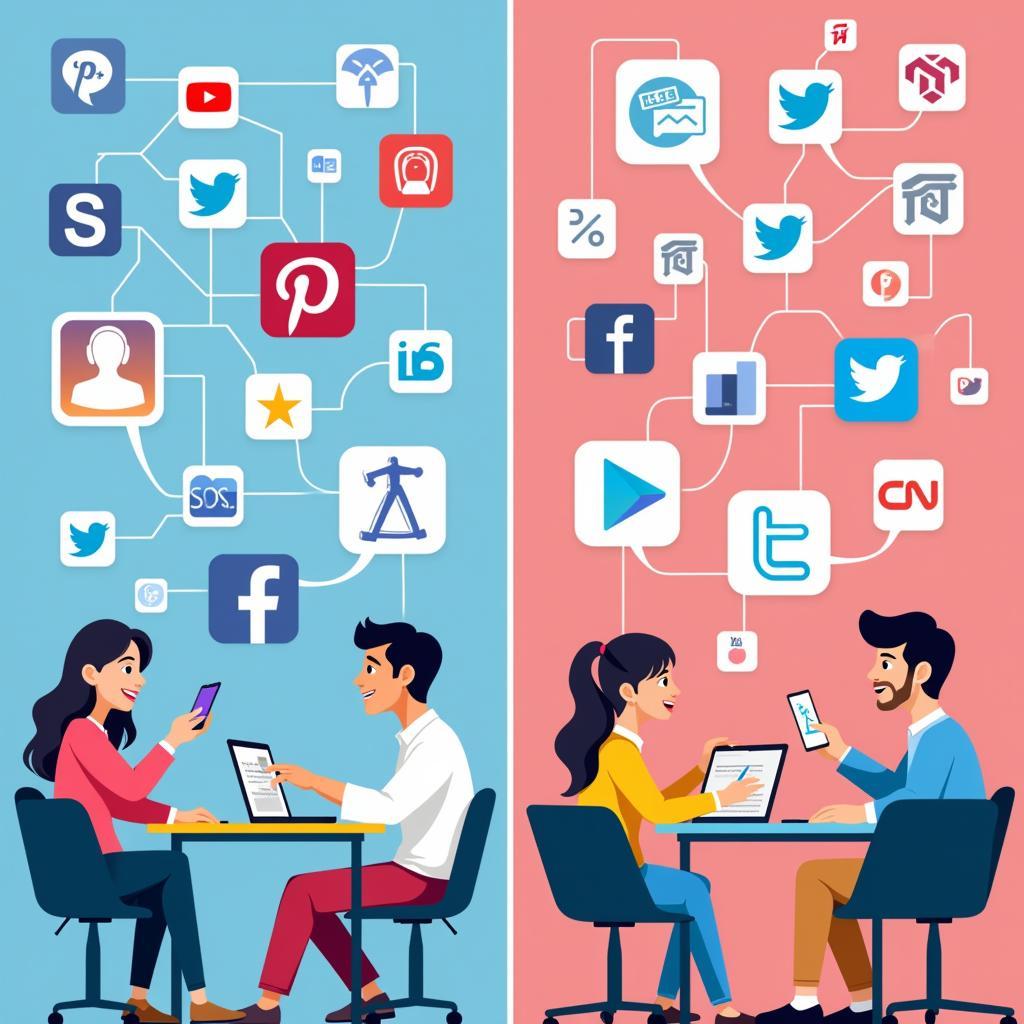The topic of social media platforms’ responsibility for misinformation has become increasingly prevalent in IELTS Writing Task 2 examinations. Based on recent test reports and analysis of past papers, this topic has appeared multiple times in various forms since 2019, particularly in countries like Australia, the UK, and Canada. The frequency suggests a high probability of encountering similar questions in future tests.
should social media platforms regulate misinformation has become a critical discussion point in academic writing assessments, reflecting its significance in contemporary society.
Analysis of the Question
Some people believe that social media companies should be legally responsible for misinformation spread on their platforms, while others think users should be responsible for verifying information they share. Discuss both views and give your opinion.
This question requires:
- Discussion of both perspectives
- Personal opinion
- Examples and supporting evidence
- Balanced analysis

Sample Essay 1 (Band 8.5)
The debate over who should bear responsibility for the spread of false information on social media platforms has become increasingly crucial in our digital age. While some advocate for holding companies legally accountable, others emphasize user responsibility. In my opinion, both parties share responsibility, but social media companies should bear the primary burden.
Those arguing for corporate responsibility present compelling arguments. Social media platforms possess sophisticated algorithms and extensive resources to detect and control misinformation. Facebook and Twitter, for instance, have already demonstrated their capability to identify and remove false content related to COVID-19 and elections. Moreover, these companies profit from user engagement, including the viral spread of sensational, often misleading content. Therefore, they should be legally obligated to invest in robust fact-checking systems and content moderation.
However, proponents of user responsibility make valid points. Individual users ultimately choose what to share and believe. is social media responsible for spreading misinformation is a complex issue that requires critical thinking from users. Digital literacy and personal accountability are essential skills in the modern world, and relieving users of all responsibility could discourage the development of these crucial capabilities.
In my view, while users should exercise judgment, social media companies must take the lead in combating misinformation. These platforms have created ecosystems that can amplify false information rapidly, and with this power comes responsibility. A balanced approach would involve companies implementing strict content verification systems while simultaneously promoting digital literacy among users.
Sample Essay 2 (Band 6.5)
Nowadays, fake news on social media is a big problem. Some people think social media companies should be responsible for this, but others say users should check information before sharing. I will discuss both sides and give my opinion.
On one hand, social media companies have the power to control what appears on their platforms. They make money from advertisements and users, so they should make sure the information is correct. For example, during the pandemic, many false stories about treatments were shared. These companies should have stopped this dangerous information.
On the other hand, users need to be careful about what they share. Everyone has the responsibility to check if information is true before sharing it. should social media platforms be held responsible for spreading misinformation is important, but users also play a big role. If people shared less fake news, there would be less misinformation.
I think both sides have some responsibility, but social media companies should do more. They have more resources and technology to fight fake news. However, users should also learn to check information better.
Score Analysis
Band 8.5 Essay:
- Strong cohesion and coherence
- Sophisticated vocabulary: “sophisticated algorithms,” “compelling arguments,” “robust fact-checking systems”
- Clear position with balanced discussion
- Complex sentence structures
- Relevant examples and supporting evidence
Band 6.5 Essay:
- Basic organization
- Simple but clear arguments
- Limited vocabulary range
- Some repetition
- Less sophisticated examples
- Basic linking words
Key Vocabulary
- Misinformation (n) /ˌmɪsɪnfərˈmeɪʃən/ – false or inaccurate information
- Accountability (n) /əˌkaʊntəˈbɪləti/ – responsibility to someone or for some activity
- Robust (adj) /rəʊˈbʌst/ – strong and effective
- Digital literacy (n) /ˈdɪdʒɪtl ˈlɪtərəsi/ – ability to use digital technology effectively
- Ecosystem (n) /ˈiːkəʊˌsɪstəm/ – complex network or interconnected system
- Amplify (v) /ˈæmplɪfaɪ/ – increase in intensity or effect
- Verification (n) /ˌverɪfɪˈkeɪʃən/ – process of establishing truth or correctness
In conclusion, this topic remains highly relevant for IELTS examinations. Practice writing essays about related topics such as social media regulation, online privacy, and digital responsibility to prepare effectively. Share your practice essays in the comments for feedback and improvement suggestions.